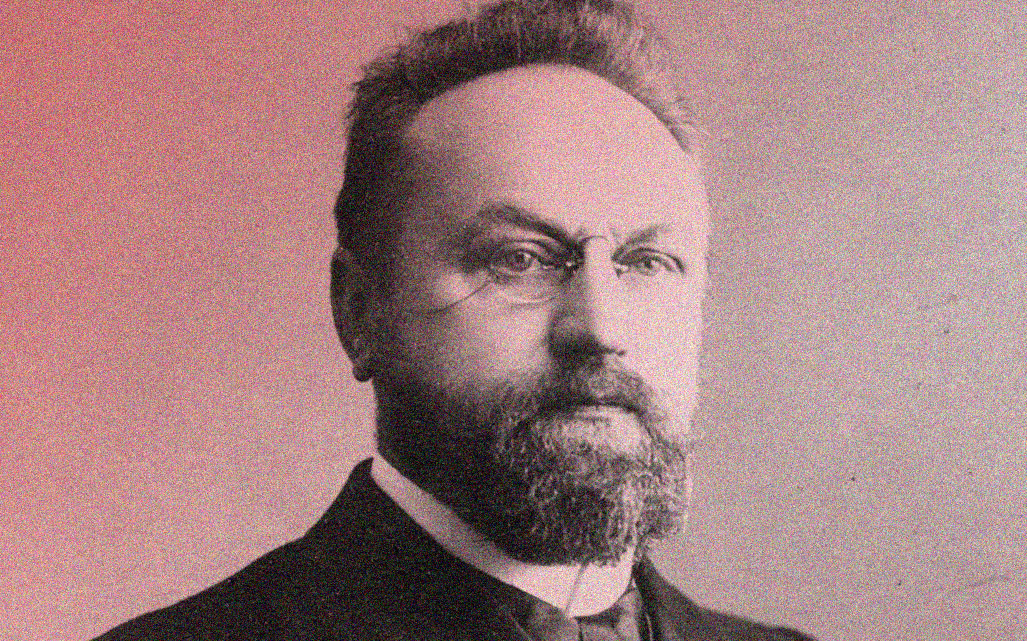When we think about markets, we often think only in terms of mathematics or money. But at a deeper level, markets are simply networks of human relationships. When we participate in economic activity, we aren’t just creating wealth; we are forming communities, cultures, and civilization, partnering with God and neighbor in a divine exchange of gifts, blessings, and love.
Yes, love!
Yet the mere existence of markets doesn’t mean that such love will manifest itself accordingly. For that, we’ll need to tend to something deeper still, remembering the transformative power of virtue at an individual and institutional level.
In his book, The Christian Family, theologian Herman Bavinck writes beautifully about the overarching connections, reminding us that “all good, enduring reformation begins with ourselves and takes its starting point in one’s own heart and life.” If we hope for the reformation of markets and economies, it will begin with the reformation of the human spirit and soul.
Bavinck’s primary focus is the family, which he describes as “the nursery of love” — a God-given institution that has the power to transform civilization by developing strong relationships and cultivating vibrant “religious-moral” lives. But more broadly, he also paints a vivid picture of why those bonds are essential for the flourishing of all else:
All progress in civilization and culture is dependent on the religious-moral life of humanity. All of history serves as proof of this. When religion and morality deteriorate among a nation, they drag down with them the best and most refined culture. Intellectual development, material prosperity, wealth, and luxury are in themselves excellent things; but when they are severed from the root of religion, they serve to advance evil far more than they arrest and restrain it. No enduring civilization exists without a healthy religious and moral life.
When it comes to economics, the consequences are clear. If we fail to put love at the center, something else will inevitably take its place — greed, materialism, control, comfort, convenience — whether in the halls of power and policymaking or at the lower levels of daily economic action.
On this, Bavinck reminds us of the inherent spiritual and social nature of economic activity (emphasis added):
People committed to a materialist or socialist viewpoint have supposed that society with all its relationships and goods should be a product of economic, material circumstances. But this teaching directly contradicts reality. Even though society exerts influence on its members, society itself is always composed of people who come not only with a body and a stomach, but also with a heart and a soul, an intellect and a conscience. No matter what interests may induce people to form a connection with each other, these are always people who are morally responsible and may not do whatever they may happen to desire or want. Sometimes, in fact, such connections are formed with a view to protecting spiritual and moral interests, such as, for example, science, art, charity, compassion, etc.
But even if it involves purely material interests, like developing a mine, cultivating the soil, producing various material goods, etc., then still these always involve people who are in a particular relationship with each other, who respect each other as people, and who are subject to a common law for all their thinking and acting. Before anything else, a society is a complex composite of moral relationships. It matters very little if these moral relationships are incorporated into the law as legal regulations; occasionally codifying a right is proof that such moral relationships no longer possess adequate security in people’s consciences. But from their very origin, they rest in the spiritual, moral nature of the human person and their ultimate firm footing lies there; a law that is not rooted in conscience is powerless; a people’s economy is based on their ethics.
Once we recognize this basic reality, we begin to see the importance of marriage and the family in building a proper foundation, and from that we see the importance of love, properly understood, in all of our human relationships.
For there in the family from the moment we enter the world we get to know all those relationships that we will enter later in society— relationships of freedom and connectedness, independence and dependence, authority and obedience, equality and difference. And we get to know them in the family not in an abstract academic way, not by theoretical instruction, but practically, in and through life itself; all moral relationships are embedded and interwoven in the family, in the bonds of blood, and they are rooted in the origins of human existence. In the family we get to know the secret of life, the secret, namely, that not selfishness but self-denial and self-sacrifice, dedication and love, constitute the rich content of human living.
And from the family we carry those moral relationships into society…The family is the nursery of love and inoculates society with such love. We need that love if there is going to be any reform within society. Not selfishness, not greed, not thirst for domineering, but love is the foundation and the cement of the Christian society. Christianity is not the architect, but the soul of society. One who destroys the family is digging away the moral foundations on which society has been established as a moral institution. But one who exalts the family and outfits leadership with love rather than selfishness, such a person does a work that pleases God. For God is love and love is the law of his kingdom.
This Valentine’s Day, let’s remember that love is much more than the sentimentality and self-gratification that consumes our culture, and its impact and influence goes well beyond romantic relationships. Indeed, it brings redemption, transformation, and extravagant abundance across the social and economic order.
Today, we celebrate love and remember the secret of life: “that not selfishness but self-denial and self-sacrifice, dedication and love, constitute the rich content of human living.”
